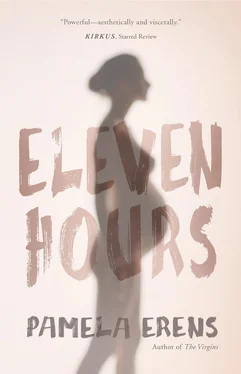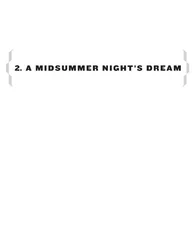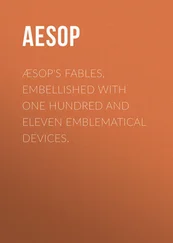Pamela Erens - Eleven Hours
Здесь есть возможность читать онлайн «Pamela Erens - Eleven Hours» весь текст электронной книги совершенно бесплатно (целиком полную версию без сокращений). В некоторых случаях можно слушать аудио, скачать через торрент в формате fb2 и присутствует краткое содержание. Год выпуска: 2016, Издательство: Tin House, Жанр: Современная проза, на английском языке. Описание произведения, (предисловие) а так же отзывы посетителей доступны на портале библиотеки ЛибКат.
- Название:Eleven Hours
- Автор:
- Издательство:Tin House
- Жанр:
- Год:2016
- ISBN:нет данных
- Рейтинг книги:4 / 5. Голосов: 1
-
Избранное:Добавить в избранное
- Отзывы:
-
Ваша оценка:
- 80
- 1
- 2
- 3
- 4
- 5
Eleven Hours: краткое содержание, описание и аннотация
Предлагаем к чтению аннотацию, описание, краткое содержание или предисловие (зависит от того, что написал сам автор книги «Eleven Hours»). Если вы не нашли необходимую информацию о книге — напишите в комментариях, мы постараемся отыскать её.
Eleven Hours
Eleven Hours — читать онлайн бесплатно полную книгу (весь текст) целиком
Ниже представлен текст книги, разбитый по страницам. Система сохранения места последней прочитанной страницы, позволяет с удобством читать онлайн бесплатно книгу «Eleven Hours», без необходимости каждый раз заново искать на чём Вы остановились. Поставьте закладку, и сможете в любой момент перейти на страницу, на которой закончили чтение.
Интервал:
Закладка:
“Is this an engagement ring?”
“Mmm,” he said.
A proposal seemed uncharacteristically old-fashioned of him. She’d figured the inevitable decision to marry would be a joint one, something they’d come to one night after a talk about the apartment and their bills. That was their style. Lore’s first thought was that the money he’d spent on the ring would have better gone toward their wedding. But when she started to say this, and to protest that he should return it for something simpler, he became agitated, and told her that if he couldn’t spoil her over an engagement ring, whenever would he?
She should have been suspicious then. In fact she was suspicious. When had Lore ever needed or wanted to be spoiled? When had their lovers’ vocabulary ever included the word spoiling ? One evening a few weeks earlier, she and Asa and Julia were sitting over dinner in the apartment, and she was pricked by a wordless thought. She looked from Asa to Julia and back again. The thought escaped her, and what occurred in its place was that Asa and Julia were looking more and more alike. People had sometimes taken them for brother and sister despite the difference in their physiques — because of the olive skin, the long narrow noses, the curly hair. Their height, their long fingers and the way they had of thrusting them up in the air when excited. People guessed: Jewish? Black? Italian? But related to each other, surely. Now it seemed to Lore that even their ears had the same shape, and that they cocked their heads at the same angle and cut up their vegetables in the same slow, overly attentive way. The words coming out of their mouths, for several fugue-like minutes, had the same timbre, the same intonations. And then Lore came out of it and reached for another helping of spaghetti bolognese, and took a sip of red wine.
Lore had flushed the emerald ring away, her pride beating loudly in her ears, when she could have sold it. Then she bought herself this silver band, in an absurdly expensive boutique in Soho, to celebrate the fact that she did not need a fiancé to have a ring. The woman in the shop explained that the pattern was Native American and meant everlasting love and life. “It will bring you good luck. You see how the L shapes repeat? There’s no beginning or end.”
Now she would be her own fiancé; she would marry herself. She would be both father and mother to this child. It was, really, one of the most ordinary stories in the universe.
She waits with dumb patience as Franckline applies the pressure cuff and puffs it tight around her upper arm. The reading is normal, 120 over 90, but Franckline takes it twice. Then she says that the ring must still come off, she is going to call an orderly. Let her take it off then, Lore thinks. She commits an exaggerated shrug of surrender. She is tired. She is very tired. The ring, Franckline has promised, can be repaired.
“And I’ll check in with Dr. Elspeth-Chang,” Franckline says, to reward her.
This time Lore closes her eyes so as not to notice the absence in the room, the fact that Franckline is gone. The place behind her eyes winks with pricks of light, interior stars, and, slowly, location retreats. There is no room around her, no hospital, no busy street with cars shushing by — just the faint sound of a horn, blocks away. She is untethered, a blurry presence smudged across a dense atmosphere. How good to be this blurred thing within a muted hum. The horn sounds again. The ache in her neck dissolves; her heavy belly is a great buoyant ball. How, mostly, she had liked moving through the streets of the city, even in her fatigue, with the great belly before her. Her slow, ponderous strides, and the way knots of people sidestepped and fanned out to give her way. Some timeless instinct that people still had of respect and humility toward a woman carrying new life. Lore stopped into the small, cunning baby-clothing shops on Madison Avenue — she could afford almost nothing in them — and tears misted her eyes at the tiny organic-cotton onesies and socks. There were embossed wooden blocks and certified toxin-free bottles and swirls of board books that would expose your baby to fascinating colors and textures for twenty dollars apiece. Lore thought it all ridiculous, a way of extorting money out of people who had too much of it, but at the same time she longed for all this apparatus of purity and improvement. Less ridiculous to her was the purity of the birth itself: the dignity of labor without intrusion — without monitors, injections, forceps, stitches. She painted in her mind a picture of a mattress on the floor and candles on the windowsill. Quiet music playing in a corner, and strong hands. A baby’s lone wail in the busy silence. Then she erased that picture because who would stay up with her, whose would be the hands? It would have to be the hospital and its dark competencies after all. But still she would keep her child and herself as safe from the meddling world as she could. Offered the AFP test and the Tay-Sachs, she refused. She would accept this child in whatever condition it arrived. Dr. Elspeth-Chang shook her head. A single mother, Lore might be financially ruined by caring for a child with a serious disability. Lore replied that she knew how to make do, had come from people who always made do.
So she ate stir-fried vegetables and brown rice, and sitting on the toilet she clenched and unclenched her pelvic muscles to prevent episiotomy. One of the cunning stores on Madison carried a book called The Birth Plan , which Lore bought. She read it and took pages of notes. She had thought already about the epidural and rooming in, but it seemed there were many other things to consider — should one allow the Vitamin K injection? The erythromycin drops? Whenever she thought of her Soleil emerging from the warmth of her body into cold air and brisk professional hands and the terror of being moved swiftly through open space, a pang seized her throat, and she shut her eyes against the pictures. In accepting the hospital she had accepted these insults to Soleil — the air, the hands, the flailing — but she would spare Soleil what pain she could. She spent long hours after school reading in The Birth Plan about typical hospital procedures — what was necessary and what might be less so — and she composed her instructions. It was satisfying to draft and redraft, to hone her desires. Detail did not bore her. Detail was power. Child care for Soleil would cost $1,200 a month, once she went back to work. Diapers and other supplies were budgeted for the first year at $750, formula and food at $800, clothing at almost none, since a colleague at P.S. 30 planned to deed Lore her toddler’s old sleepers and unisex overalls and Ts.
She dozes. A great umbrella opens, its spines blooming outward, but one spine is broken and the black fabric flaps up and down … Now Franckline is speaking to her. With an effort Lore concentrates, wakes. Dr. Elspeth-Chang would like to try to finish seeing her scheduled afternoon patients. “There’s not much for her to do until you’re fully dilated,” says Franckline. “But you’re moving along. Do you want the resident to check you again?”
Lore declines drowsily. Keep that doctor’s dirty fingers out of me, she thinks. She holds her hand before her eyes and looks at the flesh pinched deeply by the silver ring. I suppose I could do without one finger, she decides.
Franckline rises and, murmuring something Lore doesn’t catch, ducks into the bathroom at the front of the labor room. The door shuts with a click. Gone again! cries Lore silently. But it is only the bathroom, she reminds herself, and people must close the door when using the bathroom. Still, why should all these people come and go, come and go, nurses and doctors and men with snow in their hair, but she must lie on the bed, beached and passive? She too will go, she thinks. She will get up and walk out the door. This is not a prison or a reformatory, she has the right. She pushes herself upright and does her best to arrange the awkward gown, grips her hospital slippers with firm toes. One thing she learned very young was that if you carried yourself as if you had business, as if your presence somewhere was legitimate, people didn’t notice if you were in the wrong place or doing the wrong thing. At Our Lady of Sorrows she wore socks that were too short, or in non-approved colors, and if she pretended to herself that she was dressed according to code, none of the nuns seemed able to see. So now she walks the hallway without her nurse. She takes the opposite direction this time, and feels an outsize excitement at the thought of learning what might lie beyond the maternity ward in this direction, not Pulmonary but something else, some other troubled part of the body, and rooms filled with people suffering in an entirely different way. Old and young, poor and rich, sick and sicker. Young and rich did not keep you from being cut down, not always. Her mother (not rich, but not old either) had died at forty-five. She lay in the hospital bed in the house in Hobbes Corners, her mouth drawn into an oblong, and an odor to her breath that Lore would know forever after as the odor Death sent when it knew it had won its fight to take you.
Читать дальшеИнтервал:
Закладка:
Похожие книги на «Eleven Hours»
Представляем Вашему вниманию похожие книги на «Eleven Hours» списком для выбора. Мы отобрали схожую по названию и смыслу литературу в надежде предоставить читателям больше вариантов отыскать новые, интересные, ещё непрочитанные произведения.
Обсуждение, отзывы о книге «Eleven Hours» и просто собственные мнения читателей. Оставьте ваши комментарии, напишите, что Вы думаете о произведении, его смысле или главных героях. Укажите что конкретно понравилось, а что нет, и почему Вы так считаете.












